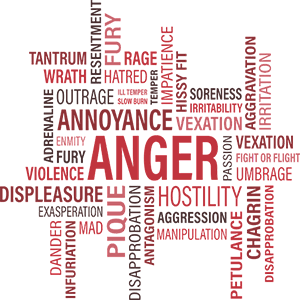Home Health Care Providers Discuss Depression in Older Adults
Learn more about how our home health care providers can help seniors who are depressed in Tualatin, Lake Oswego, Portland, & West Linn, OR
 Depression is a common problem among older adults, but it is NOT a normal part of aging. In fact, studies show that most seniors feel satisfied with their lives, despite having more illnesses or physical problems.
Depression is a common problem among older adults, but it is NOT a normal part of aging. In fact, studies show that most seniors feel satisfied with their lives, despite having more illnesses or physical problems.
Home health care providers note that depression is more than just feeling sad or blue. It is a common but serious mood disorder that needs real treatment. Never view it as a sign of a person’s weakness or a character flaw – or think you can just "turn it off". It’s actually an illness with serious consequences.
Home Health Care Providers Explain Grief vs. Depression
Sometimes it can be difficult to distinguish grief from major depression. Grief after the loss of a loved one is a normal reaction and generally does not require professional mental health treatment. Other major life changes that happen as we get older may also cause feelings of uneasiness, stress, and sadness. Moving from work into retirement, or dealing with a serious illness can leave people feeling down or anxious. After a period of adjustment, many older adults can regain their emotional balance, but others do not and may develop depression.
Depression Impacts Older People Differently Than Younger People
Depression is associated with an increased risk of cardiac diseases and an increased risk of death from illness. At the same time, depression reduces a senior’s ability to rehabilitate. Studies of nursing home patients with physical illnesses have shown that the presence of depression substantially increases the likelihood of death from those illnesses. Depression also has been associated with increased risk of death following a heart attack. For that reason, it is important to make sure that a senior is evaluated and treated, even if the depression is mild.
While depression is more common in women, it more often increases the risk of suicide in older men. The suicide rate in people ages 80 to 84 is more than twice that of the general population. That’s why the National Institute of Mental Health considers depression in people age 65 and older to be a major public health problem.
Warning Signs of Senior Depression
If you suspect that your loved one is suffering from depression, home health care providers encourage you to pay attention to these health indicators:
Irritability: Sudden mood changes can suggest depression. If a normally cheerful senior now gets easily irritated, take note.
Loss of self-regard: Experts say that one of the most obvious signs of depression in seniors is seen when they show a lack of pride in their personal appearance. Perhaps your mother has stopped wearing makeup, or your father has stopped bathing.
Social withdrawal: Depressed seniors tend to shut out others and avoid social situations.
Increased pain: Depression often amplifies physical pain.
Recent illness or surgery: Seniors recovering from major illness or surgery are much more likely to develop a depressive episode, and some go on to have a depression disorder. In fact, research shows that 15 percent of people who are discharged from a hospital leave with depressive symptoms.
Recent loss: Older persons have a much higher risk than do younger people of falling into depression after the loss of a loved one. It’s actually quite common.
Insomnia: Studies have linked depression with the inability to sleep, and insomnia is a risk factor for depression onset and recurrence – particularly in seniors.
Treatment is Available
Doctors are encouraged to routinely screen for depression. Using a series of standard questions, a primary care doctor can provide an effective screening for depression, allowing for better diagnosis and treatment. This can happen during a visit for a chronic illness or at a wellness visit.
There are several treatment options available for depression. They include medicine, psychotherapy or counseling, and electroconvulsive therapy or other newer forms of brain stimulation (such as repetitive transcranial magnetic stimulation (rTMS)). Sometimes, a combination of these treatments may be used. Ask your loved one’s doctor more about these treatments.
Don't Let Your Loved One Suffer
While it's natural to experience some grief in the face of major life changes, clinical depression doesn't go away by itself, lasts for several months, and needs to be treated by a professional. If you suspect your loved one is suffering from minor or major depressive symptoms, encourage him or her to seek help. It’s best to be a part of the solution – and because of the social stigma attached to this disorder, you’ll actually be doing your loved one a favor.
Comfort Keepers in Tualatin can help. Our Interactive Caregiving keeps senior clients engaged physically, mentally, and emotionally while living independently at home. To find out more about the many ways our home health care providers can help your loved one, even during the toughest of times, call our office today at (503) 782-9766.
References:
National Institutes of Health (NIH) Senior Health. “Depression”. Web. 2016.
American Psychological Association. “Aging and Depression”. Web. 2016.
A Place for Mom. “Elderly Depression: Symptoms & Care”. Web. 2015.
WebMD. “Depression in the Elderly”. Web. 2016.









